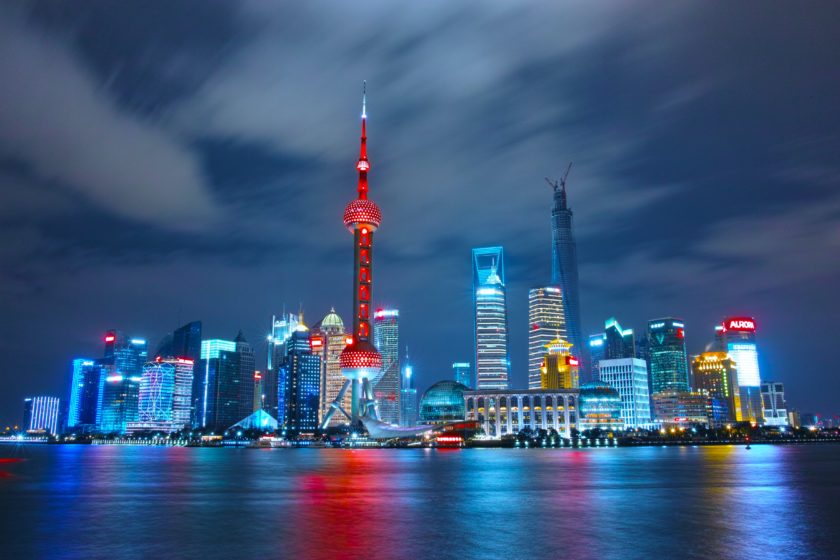Jian- Shi Cortesi, investment director at GAM, highlights the key takeaways from the Congress so far and discusses the potential catalysts for investors to return to Asian and Chinese markets.
Previous bear market cycles in Chinese and Asian equities have typically lasted between six to 12 months. Now Asia and China have been in decline for 20 months. This longest market down cycle that we have seen over the last 20 years has been caused by a series of unfortunate events that started with the tightening of internet regulations in China, which spooked investors. Towards the end of last year there were a lot of signs pointing to positive development and supportive policies coming out of China. But the biggest uncertainty at that time was the US market.
The US market sets the tone for the global market, so when the US market is down, it is difficult for global markets to rise; this is what we have seen year-to-date. Against this backdrop of a falling US market and US dollar strength, global markets, including Asian markets, have fallen with it.
The 20th National Congress of the Chinese Communist Party started at the beginning of the week. The Congress will not have a direct impact on the economy. However, once any new leadership positions are determined, new projects and initiatives are likely to restart.
The key phrase from Xi Jinping’s speech at the beginning of the congress is policy continuation, particularly relating to industry upgrades, technology innovation, the energy revolution and national security. Significant time was devoted to innovation and national security. Some of the other key points include:
• A commitment to the market economy and private sector, reaffirming the government’s support.
• Per capita GDP to reach mid-level developed countries in 15 years.
• On Covid, the speech mainly explained the policy so far, but this implies that we will probably not see any immediate change and any change may happen next year.
• Regarding the property market, Xi Jinping reiterated that property is for living and not for speculation. However, potentially there could be further easing to stabilise the property market following the party congress.
• The speech indicated that the energy transition will be a steady change, which implies a more pragmatic approach. Most likely renewable energy capacity will be first built up and then traditional energy will be retired. We think China has learned from the European experience.
Overall, this is very similar to the five-year plan which also emphasised economic growth, innovation, clean energy, and security.
The strong US dollar and weak Asian currency is depressing demand for all Asian assets across both equity and fixed income. This remains a headwind for Asian assets in general. In terms of price, the MSCI China Index is below December 2012 levels (10 years ago).
Looking at price to book valuations, the index trades at one times price to book, lower than the lows of the 2008 financial crisis and the lowest point in the last 20 years. The cause of this is investors cutting exposure.
Over the last 20 months, domestic A-shares which are dominated by domestic money, have corrected much less than Hong Kong listed shares, which are more dominated by international flow.
Against a backdrop of weak investor sentiment, rising interest rates and a generally risk-off mode, investors need a strong reason to go back to buying China A-shares and while cheap valuations are an important basis, we also need a catalyst.
Potential catalysts could include:
• Covid relaxation: We are not likely to see an immediate change in China. However, we do see that the Covid restrictions are more and more practical. The broad lockdowns are now rarer. Instead, we are seeing more targeted lockdowns for example in building blocks or residential areas for a few days in order to balance between Covid restrictions and the economic impact.
• Property stabilisation: We are seeing increasingly supportive policies. The market is waiting for confirmation that this is not going to blow up the Chinese financial system.
• Strong policy boost. In previous downcycles, markets rallied after the fear level subsided in some cases. In other cases, the market rallied after stimulus, for example stimulus coming from China in 2008 or the huge package from the US after March 2020. Currently this looks unlikely as China is looking at the West’s experience where the huge injection in liquidity in the economy in the last two years is now leading to inflation issues. Our sense is that China is unlikely to push out a huge stimulus package.
Investors have been worried about the Chinese government targeting both Chinese companies and international companies. However, since the US-China trade war started in 2018, China has resisted retaliating against a number of US companies. We have since seen Tesla building a factory in Shanghai. Starbucks has 6000 stores in China. General Motors sells more cars in China than in the US, and we have not seen any measures against these companies in favour of Chinese companies. Overall, the emphasis is still on attracting foreign capital and becoming more open to international companies.
































